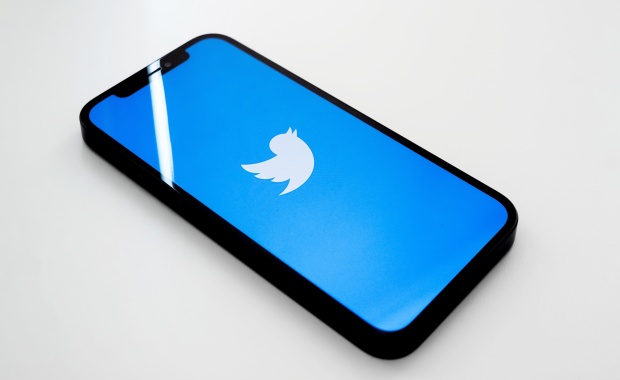Success Advice
8 Words You Should Never Use In Your Business Twitter Bio

We get it, capturing the essence of your business in 140 characters on Twitter is tough. This is more of a reason to be short & sweet. After searching through a wide array of business Twitter pages, there is a lot of fluff in the bio section that will make most direct their attention back to clicking on their “Home” or “Profile” button and leave the non convincing page that runs with a weak bio behind. Since every word counts, here is how your average human being will react to the following words in a Twitter bio:
- “Passionate.” Can you be “passionate” about four or five things? One passion, maybe; four passions are interests, not passions. And really: Can anyone truly be passionate about “delivering lasting customer value” or “teaching small businesses to harness the power of social media” or “providing lasting solutions to common business problems”? Focused, yeah. Driven, sure. Passionate? Save that for your significant other.
- “Authority.” As Margaret Thatcher said, “Power is like being a lady; if you have to say you are, you aren’t.” If you have to say you’re an authority, you aren’t. Show your expertise instead. “Speaker at TED Conference” indicates a level of authority. “Social media authority” reads as “I spend way too much time on Facebook.”
- “Workaholic.” I suppose the intent is to say, “My nose is to the grindstone 24/7.” If you really do work that much, describe the successes all that effort produced instead. “Workaholic” has negative connotations and implies tremendous effort without tangible results. Potential customers don’t care how much you work — they care about what you get done.
- “Guru.” Forget the explanation; I just hate this one. (If you respond positively to “guru,” I would love to know why.) I also hate “sage,” “connoisseur,” “guerilla,” “whiz,” “ninja,” and other allegedly clever descriptors. Don’t be clever for clever’s sake.
- “Serial entrepreneur.” A few people start multiple, successful, long-term businesses. They truly are serial entrepreneurs. The rest start one business that fails or does okay, try something else, and keep rinsing and repeating until they find a formula that works. Those people are entrepreneurs. (And there’s nothing wrong with being “just” an entrepreneur!) If you have two or three solid successes under your belt, listing them can be powerful. If not, just say what you do now.
- “Technologist.” I found lots of definitions for a technologist. My favorite is, “A person who uses scientific knowledge to solve practical problems.” So: Is that really what you do? Many people who claim to be “technologists” just like cool new products and applications. They’re interested in technology (again, nothing wrong with that!) but they are not technologists. If you use scientific knowledge to solve practical problems, share an example. Otherwise just say, “I love my new iPad 2!”
- “Strategist.” Strategists look at the present, envision something different, and develop approaches to make their vision a reality. For example, I sometimes help manufacturing plants improve productivity and quality. There are strategies I use to identify areas for improvement, but I’m in no way a strategist. I don’t create something new; I apply my experience and a few proven methodologies. Very few people are strategists; most “strategists” are actually coaches, specialists, or consultants who use what they know to help others. 99% of the time that’s what customers need — they don’t need a strategist. Be who you are.
- “Unique.” We’re all individuals, we’re all different, we’re all unique — and we all know it. If I’m considering hiring you or buying your products, “unique” means nothing to me. Tell me why you are better.
Here’s what catches the eye: Plain language without hyperbole, exaggeration, or fluff.
While expressing personality and flair may work in some cases, if you use Twitter for business purposes plain language and accurate descriptions are what potential followers — and potential customers — really want to see.
Article By Jeff Haden, writer @ Owners Manual
Business
The Simple Security Stack Every Online Business Needs
Most small businesses are exposed online without realising it. This simple protection stack keeps costs low and risks lower.

Running a business online brings speed and reach, but it also brings risk. Data moves fast. Payments travel across borders. Teams log in from homes, cafés, and airports. (more…)
Business
If Your Business Internet Keeps Letting You Down, Read This
From smoother operations to better security, dedicated internet access is quietly powering today’s high-performing businesses.

Today, a dependable internet service is the bedrock for uninterrupted business operations. Many organizations rely on stable online connections for communication, data transfer, and customer interaction. (more…)
Did You Know
How Skilled Migrants Are Building Successful Careers After Moving Countries
Behind every successful skilled migrant career is a mix of resilience, strategy, and navigating systems built for locals.

Moving to a new country for work is exciting, but it can also be unnerving. Skilled migrants leave behind familiar systems, networks, and support to pursue better job opportunities and a better future for their families. (more…)
-

 News2 weeks ago
News2 weeks agoBrandon Willington Builds 7-Figure Business by Ignoring Almost Everything
-

 Health & Fitness2 weeks ago
Health & Fitness2 weeks agoWhat Minimalism Actually Means for Your Wellness Choices
-

 Did You Know2 weeks ago
Did You Know2 weeks agoWhy Most Online Courses Fail and How to Fix Them
-

 Business2 weeks ago
Business2 weeks agoIf Your Business Internet Keeps Letting You Down, Read This
-

 Business6 days ago
Business6 days agoEntrepreneur’s Guide to Pay Stubs: Why Freelancers and Small Business Owners Need a Smart Generator
-

 Business4 days ago
Business4 days agoThe Simple Security Stack Every Online Business Needs
-

 Scale Your Business4 days ago
Scale Your Business4 days ago5 Real Ways to Grow Your User Base Fast
-

 Finances4 days ago
Finances4 days agoWhy Financial Stress Is One of the Biggest Barriers to Personal Growth



























6 Comments